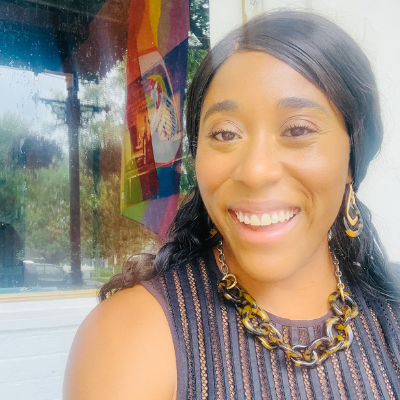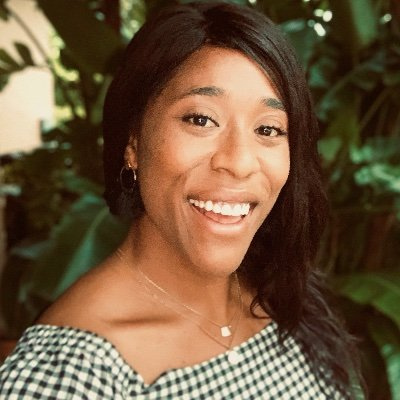Meet Kaye-Alese Green, BUSM’s Inaugural Diversity Fellow
Straight career paths may be faster, but they are decidedly less interesting. For Kaye-Alese Green, the winding path to becoming BUSM’s inaugural diversity fellow has allowed her to explore more than one fork in the road.
Green received her bachelor’s degree in psychology and master’s degree in urban education and public health from the University of Central Florida, took a few months off to travel Europe and worked a financial project management job all before starting medical school.
Once she landed at BUSM, Green joined the Racism in Medicine Vertical Integration Group (VIG), formed in May 2019 by the Medical Education Committee (MEC) to assess how systemic racism impacted the school’s climate and curriculum over the course of one year.

It was during this time that Green began to wonder what she would be able to do with more time and resources to devote to diversity and antiracism work. She wrote down some of her ideas, and these notes were discovered by a mentor who encouraged her to really consider the possibility. Then, in January 2020, Green pitched the idea of a full-time student diversity position to Associate Dean of Medical Education Priya Garg, MD, who was all ears.
Simultaneously, the Diversity & Inclusion office received an external grant from Vertex Pharmaceuticals focused on pipeline development. Jonathan Woodson, MD, MSS, FACS, Director of BU’s Institute for Health System Innovation and Policy, also had a keen interest in creating health equity from the start of medical education rather than backend amelioration.
So, the three got together and drew up a job description for the Diversity & Inclusion Fellow, a position that Green eventually took on in July 2020. This joint endeavor allows student fellows to engage in transformative initiatives, personal reflection and professional development centered around a topic of their passion.
“It was an unfortunately well-timed opportunity to push this work forward, based on all of the national reckoning happening around race and all of the hardship of the year,” Green said.
Green also noted that the fellowship is a rare opportunity to train students in leadership in medicine, which is not something specifically addressed during medical school. The fellowship presents the chance to develop partnerships and stretch across the aisle to create change.
One of the large-scale projects Green worked on during her fellowship is the Glossary for Culture Transformation, an inter-institutional partnership between the Boston University Medical Group, Boston Medical Center and the three schools on the medical campus. The glossary is intended to be a living, foundational tool with shared language to uplift marginalized communities and promote equity. The full glossary is expected to be published online and available for all members of the community to reference in September.
Green also was instrumental in pushing for the development of an antiracism curriculum and working with the Medical Education Office (MEO) to suggest concrete changes to the BUSM curriculum based on the VIG report findings.
Each subsequent fellow will put their own personal spin on the job, pitching a new initiative and partnership to focus on during their year in the position.
In reflecting back on her year spent in this role and working with BUSM leadership to foster an antiracist environment, Green said she feels immense privilege and gratitude.

“It’s a rare opportunity to help create and craft a part of the transformative work of an institution when you’re still in it,” she said. “Usually, it takes decades of a career to go out and do something really great, and then come back to have this sort of opportunity.”
Green, who is no stranger to the rigors of academia, has now pivoted over the law school as an MD/JD candidate. Realizing that so much of what happens in the body happens outside the clinic, she ultimately aims to create upstream changes to health equity in her career.
“My passion is really doing the work that creates healthy environments,” she said. “So that way medicine can actually be solely focused on biology – it can be critical care, it can be maintenance care — and not focused on the sequela of trauma and what the environment has done to us.”
Green stressed that the hard work she and the other members of the Diversity & Inclusion office have done this past year is about much more than themselves.
“Diversity and inclusion work can often be pigeonholed to the people that it affects, but the difficult and beautiful reality is, that it’s affects all of us,” she said. “We must rise all together; this tide can truly lift all boats.”
View all posts